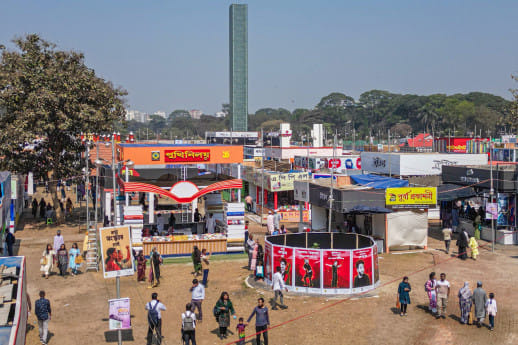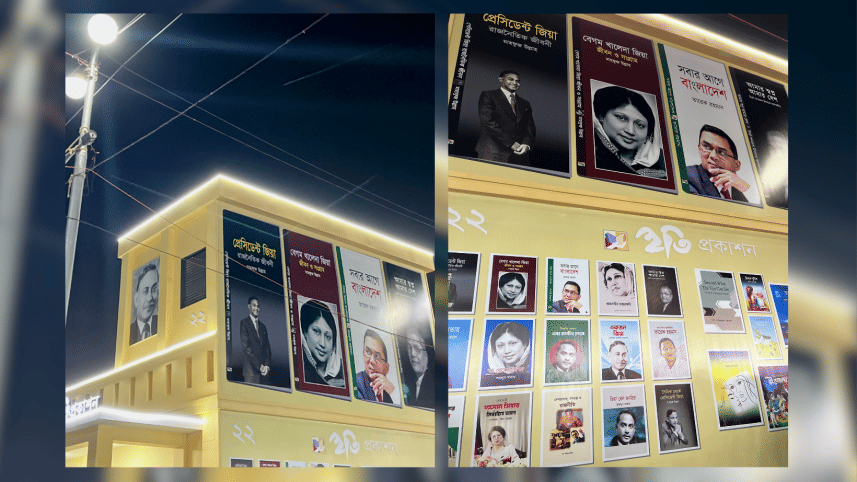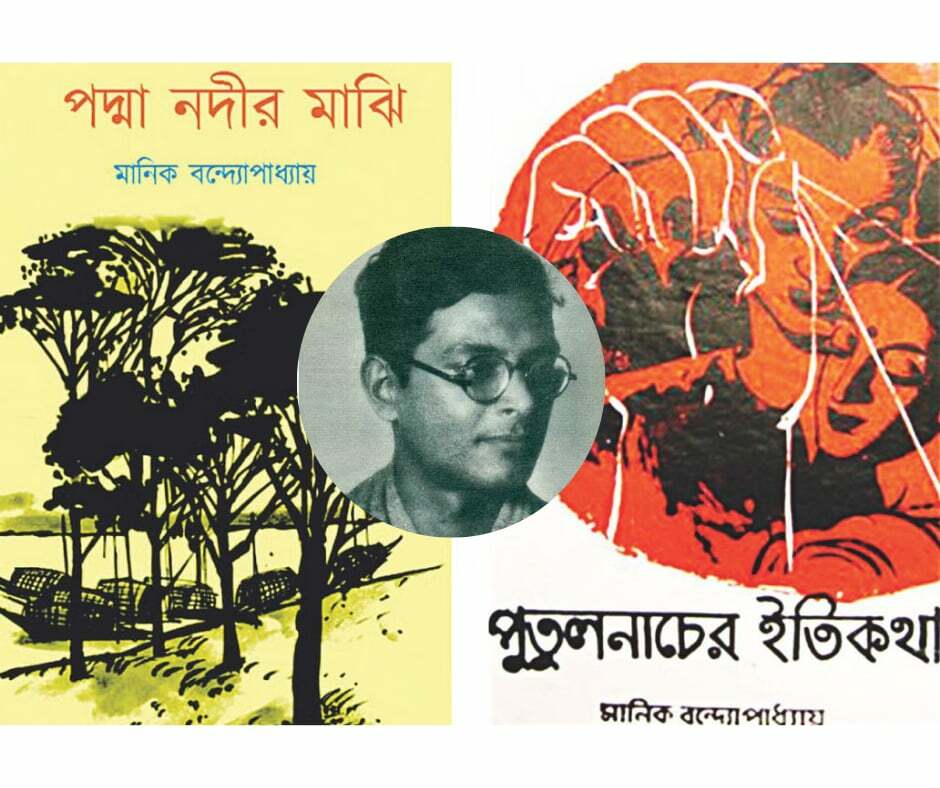Ekushey Boi Mela: At the crossroads of freedom and censorship

The Amar Ekushey Boi Mela has long been more than a seasonal book fair—it is a living barometer of Bangladesh's cultural and political soul. For me, February has always been a month steeped in nostalgia. The gentle breeze, shiny leaves, the familiar scent of fresh ink, and the memories of childhood treks with my father and sisters bloomed like krishnachura flowers—of my father's hand guiding small fingers across book spines, of careful calculations to fit one more story within a modest budget, and of the pure joy of walking home with arms full of literary treasures. Yet, as the years have passed, what was once a modest, intimate celebration of literature has become a sprawling arena where commerce, censorship, and ideological conflict intertwine.
What began in 1972 as Chittaranjan Saha's humble tribute to the 1952 Language Movement—a single stall on the Bangla Academy premises—has, over the decades, evolved into a month-long celebration of Bengali literature, culture, and identity. However, the evolution of Boi Mela presents a striking paradox. While it has grown exponentially in scale and grandeur, something essential seems to have disappeared. In its earliest days, the book fair was more of a tribute to the ideals of free expression and self-determination. The fair that once fit comfortably within the Bangla Academy premises now sprawls across Suhrawardy Udyan, yet the intimate connection between readers and literature appears to have diminished. The emergence of "book selfies" and trending book reviews on social media hints at a shift from deep engagement with literature to performative reading—a metaphor, perhaps, for broader cultural shifts in Bangladeshi society. Back then, publishers treated literature as a calling rather than a mere commodity. That aura of unencumbered intellectualism, however, has gradually eroded. Today, the fair is a juxtaposition of cherished literary traditions and the harsh realities of political interference.
A series of unsettling incidents over recent years has cast a long shadow over the fair's foundational principles. In 2023, the banning of Adarsha Publishing House from participating due to a book deemed to contain "political obscenity" was not an isolated case. The stated objections—ranging from disparaging remarks about Bengali nationalism and revered historical figures to "attacks" on the previous government—highlight a worrying trend: the imposition of subjective criteria to police what can be publicly discussed or celebrated.
Critics and stalwarts of free thought, including veteran intellectuals and publishers, have long decried such measures. The murder of Avijit Roy in 2015, an event that still haunts the community of free thinkers, marked a brutal escalation in the suppression of dissenting voices. Even if the fair's management now claims that the formation of a task force to vet "obscenity" will not impede free speech, the very act of designating certain texts as unacceptable undercuts the fair's original promise of intellectual liberation.
My own journey through the years of the fair mirrors these transformations. I recall a time when every book purchased felt like an act of rebellion against an oppressive norm—a small but profound assertion of freedom. The excitement of wandering through rows of stalls, absorbing the lively banter of literary enthusiasts, and even engaging in the playful "book selfie" phenomenon, which today seems to celebrate image over substance, now coexists with an undercurrent of disquiet.
A few years ago, a surreal encounter with a figure reminiscent of the legendary Humayun Ahmed served as a poignant reminder of the fair's once-hallowed status. That day, after a striking conversation with the look-alike, I came back home with one realisation: "Nothing lasts. The period of hunger swallows everything but stories. Stories remain." I was reminded that despite the encroaching pressures—both commercial and political—the core value of storytelling endures. Yet, this moment of beauty was tempered by the reality that even long-held traditions, such as the art of gifting books, have been reshaped by market forces and the digital age.
Fast forward to 2025, and the evolution is as stark as it is multifaceted. On one level, the fair has embraced an innovative, almost architectural, reimagining. Stalls now boast distinct, thematic designs that transform the venue into a living gallery of creative expression. Programmes celebrating historical milestones like the July mass uprising have infused the fair with a renewed sense of purpose—a nod to the democratic struggles that gave rise to our cultural identity. And you possibly cannot ignore the giant stall set up by Eti publishers, with colourful book covers, featuring BNP Chairperson Khaleda Zia and acting Chairman Tarique Rahman, on its walls. The stall, as implied already, contains books written by and about these two prominent figures—something we haven't seen in the last 15 years at least, but it's definitely a familiar scene. Same letter, different envelope.

Yet, beneath this vibrant facade, tensions remain palpable. The recent shutdown of the stall "Sabyasachi," featuring controversial exiled writer Taslima Nasrin's books—sparked by an altercation between the publisher and a mob and subsequent police intervention—exemplifies the ongoing friction between free literary expression and reactionary forces. Given the current state of law and order in the country, shouldn't the authorities have tighter security at the Boi Mela premises? During my visit, this was the first thing that concerned me. The metal detectors at the entry points are as good as a knife in a gunfight. Now, protests by student groups and impassioned condemnations by figures like Chief Adviser Prof Muhammad Yunus have only deepened the conversation about what it means to preserve freedom of expression in a space so vital to our collective cultural memory. To make it more concerning and ironic, Mahfuj Alam, adviser to the interim government, issued a strong warning against any sort of mob violence, saying the government would handle such issues with an iron hand "from now on." Does this imply that the culprits causing this violence would be excused this time? Instead of "scolding them" on social media and downplaying the gravity of the issue, the interim government should act more responsibly and promptly.
Moreover, the evolving landscape of the Amar Ekushey Boi Mela is, in many ways, a microcosm of the wider socio-political struggle in Bangladesh. On one hand, it continues to be a cherished meeting point for readers, writers, and activists—a place where books are not merely commodities but vessels of ideas and memory. On the other hand, the fair has increasingly become a flashpoint for ideological battles. The coexistence of politically charged publications, NGO-sponsored literature, and commercial bestsellers speaks to a deeper tension: the conflict between an ideal of unbridled intellectual exploration and the pragmatic demands of a market—and a state—ready to impose its own narrative.
Scholars and seasoned participants alike lament that regulations intended to curb so-called "obscenity" often end up stifling the very debates that are essential to intellectual growth. When censorship becomes a tool for political manoeuvring, it not only narrows the spectrum of permissible thought but also alienates the very audience that once found refuge in the fair's embrace.
The Amar Ekushey Boi Mela stands as a rock, reflecting the resilience of literature in the face of shifting political winds. Its evolution—from a modest gathering that celebrated the triumph of language to a sprawling fair riddled with commercial excess and political strife—mirrors the complexities of a nation grappling with its identity. While the fair's physical transformations and modern amenities speak to progress, the recurring incidents of censorship, political interference, and ideological purging reveal a society still in the throes of reconciling its democratic ideals with the realities of power.
For those of us who have loved and lived through the various incarnations of this fair, the enduring hope is that, amidst the cacophony of modern pressures, the true spirit of literature—its capacity to challenge, to comfort, and to inspire—will ultimately prevail. After all, stories remain, enduring the tides of time and tyranny alike.
Mahiya Tabassum is a member of the editorial team at The Daily Star.
Views expressed in this article are the author's own.
Follow The Daily Star Opinion on Facebook for the latest opinions, commentaries, and analyses by experts and professionals. To contribute your article or letter to The Daily Star Opinion, see our guidelines for submission.




 For all latest news, follow The Daily Star's Google News channel.
For all latest news, follow The Daily Star's Google News channel. 
Comments